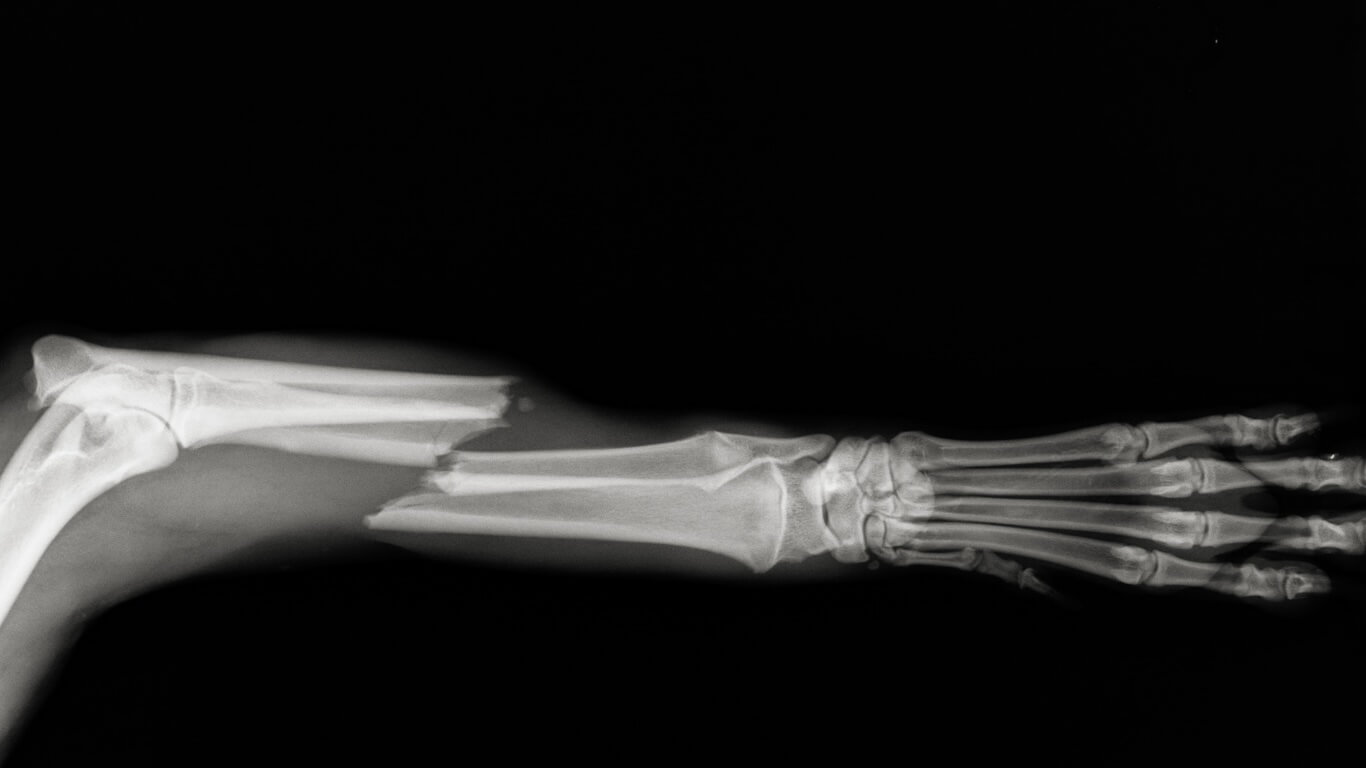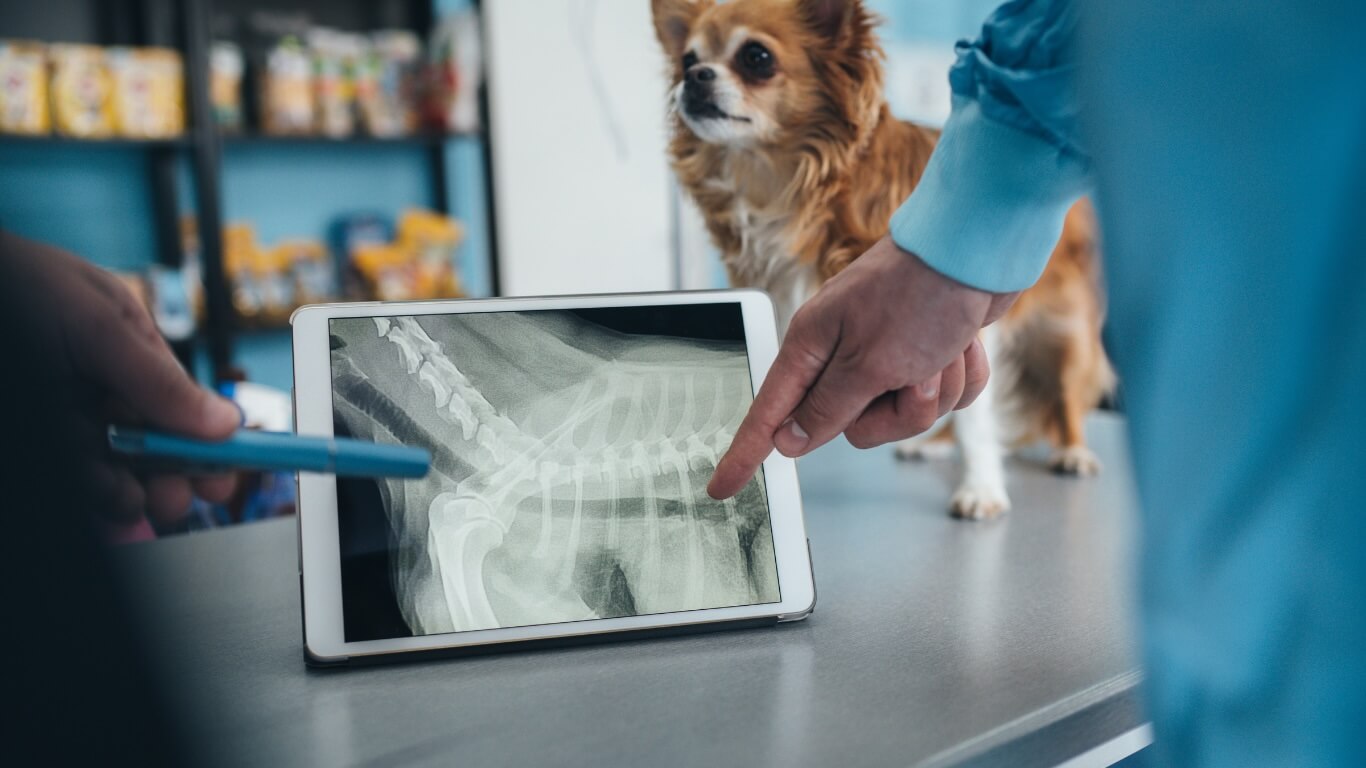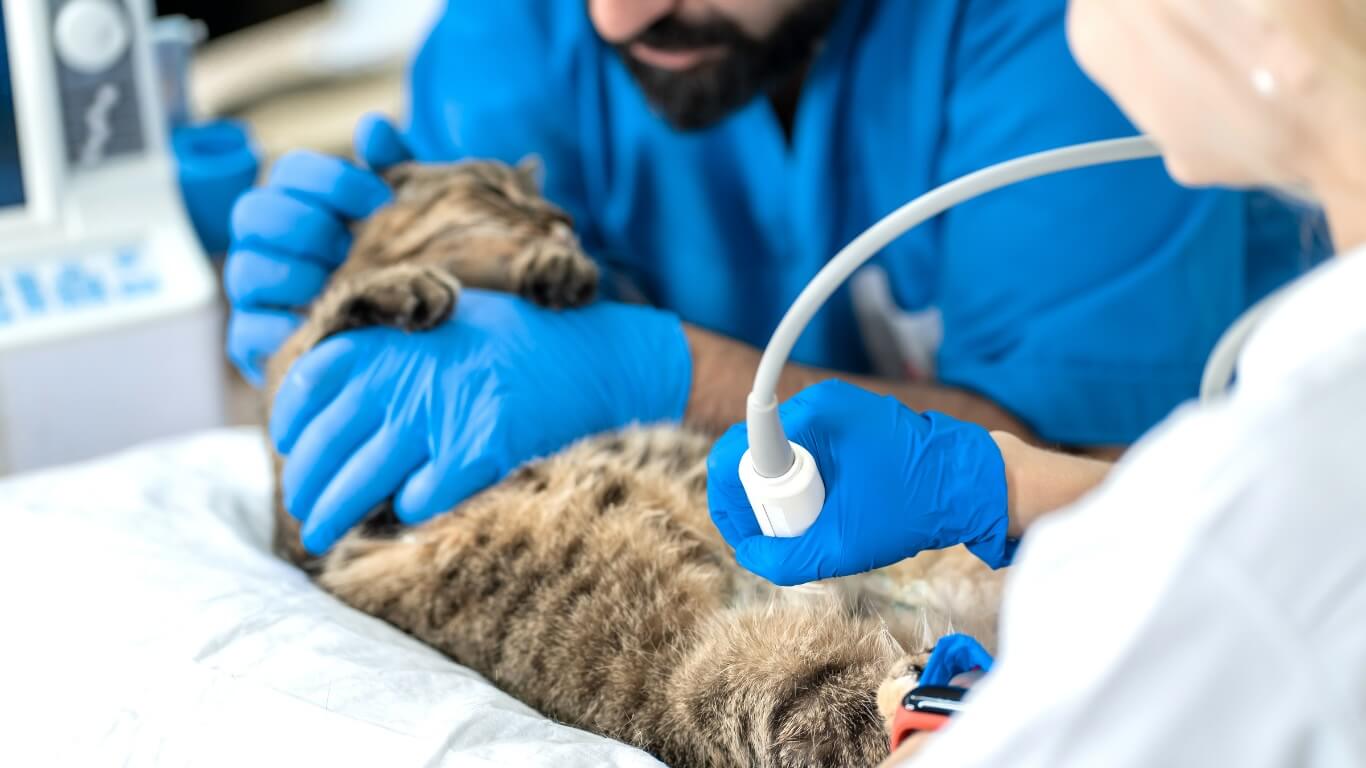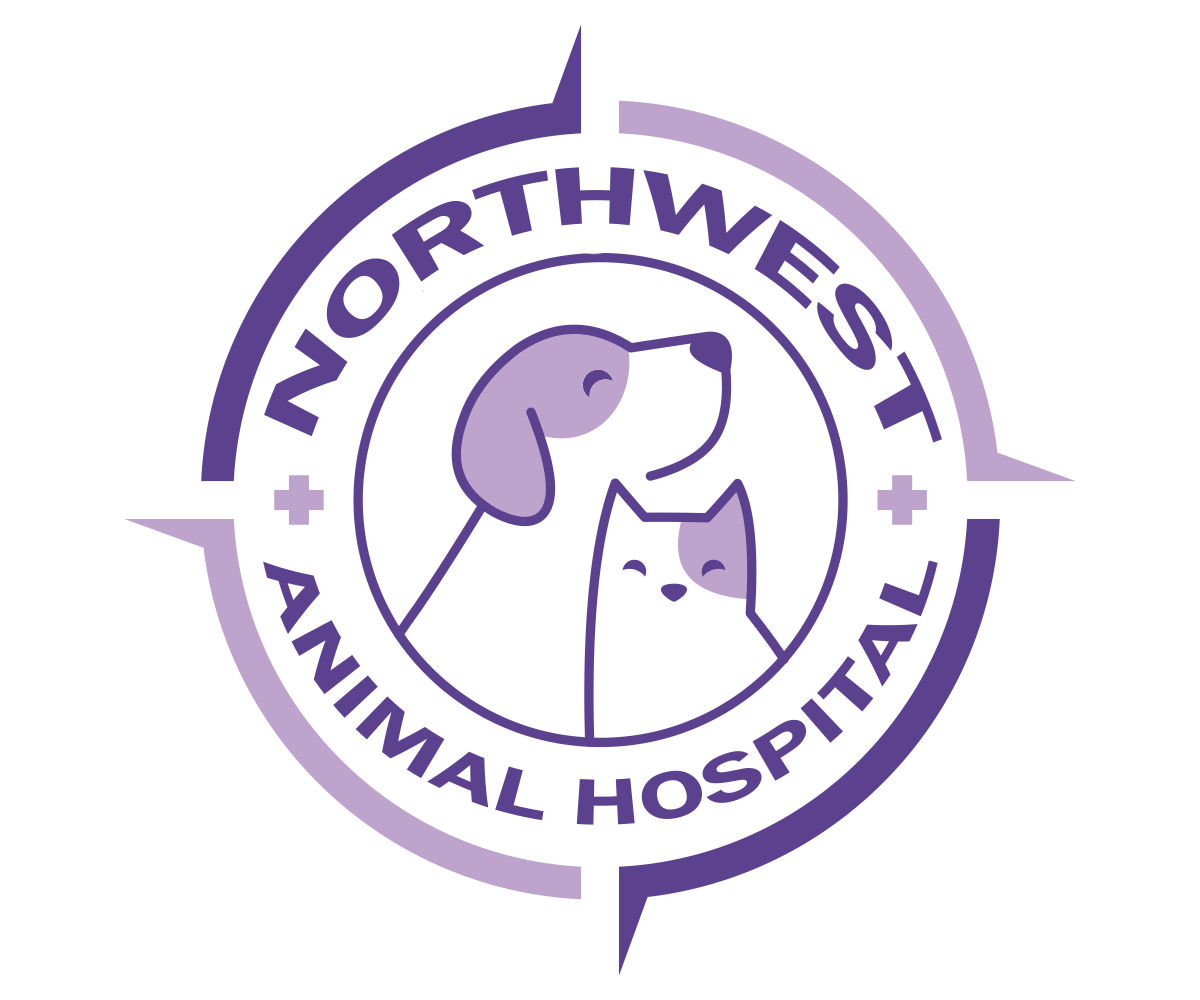Diagnostic Imaging
Diagnostic Imaging can save and improve lives
Early detection is key when it comes to treating your pet, and Northwest Animal Hospital offers complete in-house diagnostics including cutting-edge equipment and an on-site laboratory. This saves time, money, and most importantly, you don’t have to wait overnight for results — meaning your pet gets a diagnosis and needed treatment sooner.
If you’re a pet owner, you know how important keeping your furry companion happy and healthy is. But when your pet shows signs of discomfort or illness, it can be difficult to determine the cause. Diagnostic imaging is a powerful tool veterinarians use to diagnose and treat various diseases in dogs. Diagnostic imaging provides valuable information about your pet’s health that vets can’t obtain through physical examination alone. At Northwest Animal Hospital, we use the latest technology to provide your pet with the highest level of care. In this article, we’ll explain how diagnostic imaging is used to diagnose your dog, what a veterinary radiologist does, the different types of diagnostic imaging available, and how to ensure that your pet is safe during the process.
.jpg)
How is Diagnostic Imaging Used in Diagnosing My Pet?
Diagnostic imaging is used to create images of the body's internal structures so that veterinarians can diagnose and treat health issues in your pet. It is a non-invasive and economical way for your veterinarian to examine your pet’s internal structures without surgery. By creating detailed images, diagnostic imaging can detect abnormalities or diseases that may not be apparent during a physical examination. Common diagnostic imaging techniques used in veterinary medicine include radiography (X-ray imaging) and ultrasonography.
What Does a Veterinary Radiologist Do?
A veterinary radiologist is a specialized veterinarian who interprets and evaluates diagnostic imaging. They are experts in interpreting medical images and use these images to diagnose diseases and abnormalities in animals. Veterinary radiologists use their expertise to help veterinarians determine the best course of treatment for their patients.

Digital Radiologist
Veterinary diagnostic imaging is used to discover internal disease or injury. Northwest Animal Hospital employs advanced imaging technologies operated by board-certified veterinary radiologists, guaranteeing the highest quality of care for our patients.

Radiographs, or x-rays, use electromagnetic radiation directed towards the body to highlight objects within. They can detect abnormalities including skeletal fractures, soft tissue damage, foreign bodies, and dental disease.
Orthopedic radiographs and contrast studies require the patient remain completely still to work correctly, necessitating sedation in most cases. Some specialized procedures may require anesthesia. The duration of sedation or anesthesia is usually short and patient recovery is swift.
To schedule a radiology consultation or appointment for your pet, call us at (614) 451-4772.
Ultrasound

Ultrasound is a powerful diagnostic tool that creates a real-time image of an animal’s body. This composite reveals important information about internal processes including the circulatory, skeletal and gastrointestinal systems.
An ultrasound works by broadcasting high-frequency sound waves that reflect off your pet’s internal structures. A small probe held against the skin collects the returning signals to create an image of the internal body, most commonly used to examine abdominal organs like the stomach, kidneys, liver, spleen and gallbladder. An ultrasound of the heart, known as an echocardiogram, provides precise information about heart valves, blood flow, chamber size and contractions.
What Are Some of the Things that the Veterinarian Will Look for With Diagnostic Imaging?
Veterinarians use diagnostic imaging to identify and diagnose diseases, fractures, tumors, foreign objects, and other abnormalities. They look for changes in the size or shape of organs or bones as well as signs of inflammation or infection. Diagnostic imaging is also used to evaluate the heart, lungs, and other internal organs.
.jpg)
Does My Dog Need to be Sedated for Diagnostic Imaging?
Sedation for diagnostic imaging in dogs depends on the specific procedure and the individual dog. Sometimes, sedation may be necessary to ensure the dog remains still during the procedure, allowing for clear, high-quality images. This is particularly true for X-rays, as sedation can help calm dogs, reduce anxiety, and prevent movement that could blur the images. However, sedation is not always necessary, and in some cases, it may not be recommended. The primary disadvantage of sedation is the potential for side effects, including lowering blood pressure, which can cause grogginess and coldness.
Is Diagnostic Imaging Safe for My Dog?
Overall, diagnostic imaging is generally safe for dogs and other pets. Although radiation from X-rays can increase the risk of side effects like cancer, most veterinary practices use digital X-ray machines, which emit less radiation than traditional X-rays. Ultrasound and MRI scans are non-invasive and do not use radiation to create images. It is important to note that although diagnostic imaging is generally safe for dogs, it should only be performed when necessary to minimize unnecessary radiation exposure.
Conclusion
Diagnostic imaging is an essential tool veterinarians use to diagnose and treat dog injuries and diseases in dogs. By creating detailed images, diagnostic imaging works to detect abnormalities or diseases that may not be visible through physical examination alone. At Northwest Animal Hospital, your pet is our priority. If you have any questions, don't hesitate to call our team at (614) 451-4772, or you can email us at [email protected]. Our staff would love to talk with you!
To schedule a diagnostic consultation for your pet, call us at (614) 451-4772.


